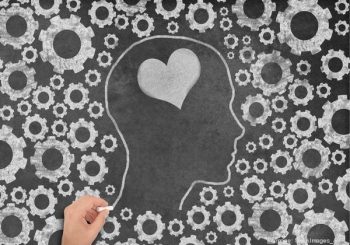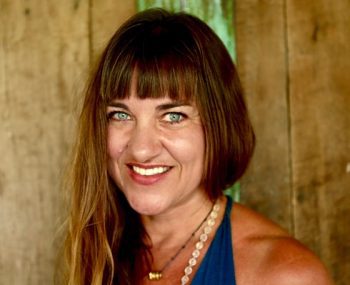 By Lissa Rankin
By Lissa Rankin
Guest writer for Wake Up World
This is a time of hard choices in uncertain times. Should you go to the hospital if you get short of breath, or should you ride it out at home? Should you let your kid endure the potential damage of remote learning, or should you let your child go to in-person school where it’s allowed? Should you quit your job so you can home school, but then how will you pay the bills and get your child’s social needs met safely?
[pro_ad_display_adzone id=”110028″]
Should you risk taking a front line job in order to create security for your family after getting fired from a company that went under? Should you join a protest to stand up for what you believe is morally just when doing so could get you infected? Should you divorce a partner who has shown you the dark side during lockdown and won’t get therapy? Now that you’ve been evicted, where should you move? Should you file for bankruptcy or let go of your house? Should you fire your employees once the PPP runs out or liquidate your dwindling retirement account to keep paying them? Should you try to move to a country where people take this virus and this corrupt government more seriously than they seem to be doing in your spinning out of control country? Should you try to buy a piece of land off the grid and find a small circle of people who share your values so you can create a bubble of safety and shared choices? But then what about all the people who don’t have the power and privilege to do this? Wouldn’t it violate your values to turn away from those whose backs your privilege was built upon? Should you fly to see your aging mother or protect her by staying away, leaving her lonely, depressed, disoriented, and isolated but virus-free?
And those are just the big decisions. There are so many small choices too. Should you dare to get together with your best friend who you haven’t seen for four months when you both live with high risk loved ones? Should you hug her when you’ve been so touch starved? Should you get that dental procedure you really need when doing so means you can’t wear a mask or socially distance from your dental team in an indoor office where people’s mouths are open and potentially shedding the virus? Should you eat at the restaurant where you know the struggling owner, or should you keep your distance? Should you risk a road trip, so your family doesn’t kill each other at home, or should you learn to deal with your restlessness? Should you sell your vacation home so you can pay your struggling employees or help out an unemployed friend? Is it okay to let your lonely, sad kid have a sleepover? Should you wear a mask while hiking on a deserted trail? Should you take it off inside your sick mother’s home so you can see each other’s shining faces smiling tenderly?
How Do You Make Decisions?
Most people make decisions by relying solely on mental intelligence and fear. You study the facts, weigh pros and cons, consider worst-case scenarios, try to avoid regret, and do your best to avoid all risk. Yet these are risky times when avoiding one risk means incurring another. While your mental intelligence still needs to inform your decisions, mental intelligence alone will not hack it right now.
How else can you make decisions? Our indigenous ancestors had access to many more decision-making faculties. While mental intelligence is very important, it is only one of the four Whole Health Intelligences I wrote about here.
Wise decision making uses all four Whole Health Intelligences—your mental intelligence, emotional intelligence, spiritual/intuitive intelligence, and somatic intelligence, or what Executive coach and author of Whole Body Intelligence Steve Sisgold calls “whole body intelligence,” or “BQ.”
Many people have lost touch with somatic intelligence, usually because trauma has caused them to dissociate from the body, leaving them disembodied and cut off from the body’s wisdom. So what is Whole Body Intelligence? For instance, you might become self-aware and alert to subtle body sensations—a tightness in your jaw or your hand gripping tightly or a twisting feeling in your gut that has added information for you to tune into when you are about to make an important decision. So what is Whole Body Intelligence, and how can you use it to help you make decisions in hard times like this?
Here are some tips from Steve’s “Whole Body Decision Making.”
Step 1. Unplug
Before you make your final decision, take a moment, and turn your focus inward and disconnect from any outside activity.
Step 2. Breathe
Take three deep breaths in through your nose and out through your mouth. On the out, breath loosen your jaw and take a sigh.
Step 3. Observe
Scan your body from head to toe. Take inventory of your body experience, body sensations, tensions, your posture, etc.
Step 4. Report
Report what you have noticed in your body—either out loud so you may hear your own voice or say it silently to yourself.
Step 5. Adjust
Allow your body to return to a natural, relaxed state by moving in some way that shakes off or reduces tension. If your shoulders, for instance, are high up near your ears, relax and lower them.
Step 6. Visualize
Take a minute or two and notice if you feel more connected to yourself. Breathe slowly in and out.
Step 7. Decide
Now decide on the next purposeful action to take. Take one more conscious breath in and out. Stay focused on your intention and go do it!
Conducting Your Intelligences
Wise decision making uses all four Whole Health Intelligences. Weaving them together like a conductor would orchestrate instruments, not using only one or the other, but consulting them all and making a holistic (whole) decision. Those who claim to make decisions only by intuition often neglect mental intelligence, which can lead to ungrounded, even ignorant, or flat out stupid decisions.
Those who rely only on the body can miss out on the spiritual wisdom we can glean from our intuition. Those who rely on mental intelligence without accessing emotional intelligence can hurt people, being “right” without being kind. When we blend these intelligences together, we can make very unique, individualized choices that also serve and protect the collective. Times like these demand such decision making if we are to live ethical, moral, empathic lives. It can be hard to get your own needs met while also protecting and caring for others’ needs, without recklessly martyring yourself and throwing your own needs under the bus or selfishly feeling entitled to getting your needs met at the expense of others. Using all four of your Whole Health Intelligences will help you make decisions that are not just smart; they are also wise, kind, compassionate, and in integrity with your greatest values.
Need More Help Making Decisions?
For more on Steve’s work, read Whole Body Intelligence, or visit his website (www.WholeBodyIntelligence.com). Steve also works one on one with leaders who need help stepping into their most powerful leadership during times of great change and transition, personally and globally. Times of great change can be times of true transformation. To hire Steve to help you learn how to step more fully in your leadership, and make decisions via your body, contact him here. As a leader myself, I’ve been a client of Steve’s during many important decision-making times in my life, as I wrote about in the foreword to his book and discussed with him as part of my National Public Television special here.
To make better use of your spiritual/intuitive intelligence, you can sign up for my online program Connect To Your Inner Pilot Light here, read The Daily Flame book here, or sign up for the free Daily Flame emails here.
To learn more about emotional intelligence, check out Karla McLaren’s cutting edge work here or read The Language Of Emotions.
![]()
Originally published at lissarankin.com and reproduced here with permission.
Recommended articles by Lissa Rankin:
- How To Honor Your Desires Without Grasping, Denying or Bypassing
- Pleasure as a Spiritual Path
- The Unmistakable Link Between Unhealed Trauma and Physical Illness
- Satisfying Our Emotional Needs Without Being Codependent
- Relationships on the Spiritual Path
- How to Make Your Body Ripe for Miracles
- Are You “Spiritual But Not Religious?”
- 10 Fun Ways to Reduce Your Cortisol Levels
- 6 Stories To Make You Believe In The Power Of The Mind To Heal You
- 7 Tips For Finding Your Tribe
About the author:
Lissa Rankin, MD is a mind-body medicine physician on a grass roots mission to heal healthcare, while empowering you to heal yourself. She is the founder of the Whole Health Medicine Institute training program for physicians and healthcare providers, and the New York Times bestselling author of the books Mind Over Medicine: Scientific Proof That You Can Heal Yourself (2013), The Fear Cure (2014), and The Anatomy of a Calling (2015).
Lissa blogs at LissaRankin.com and created the online community HealHealthCareNow.com. She is also the author of several other books, a speaker, a professional artist, an amateur ski bum, and an avid hiker. She lives in the San Francisco Bay area.
Connect with Lissa on Facebook and Twitter, or visit LissaRankin.com.
[pro_ad_display_adzone id=”110027″]







